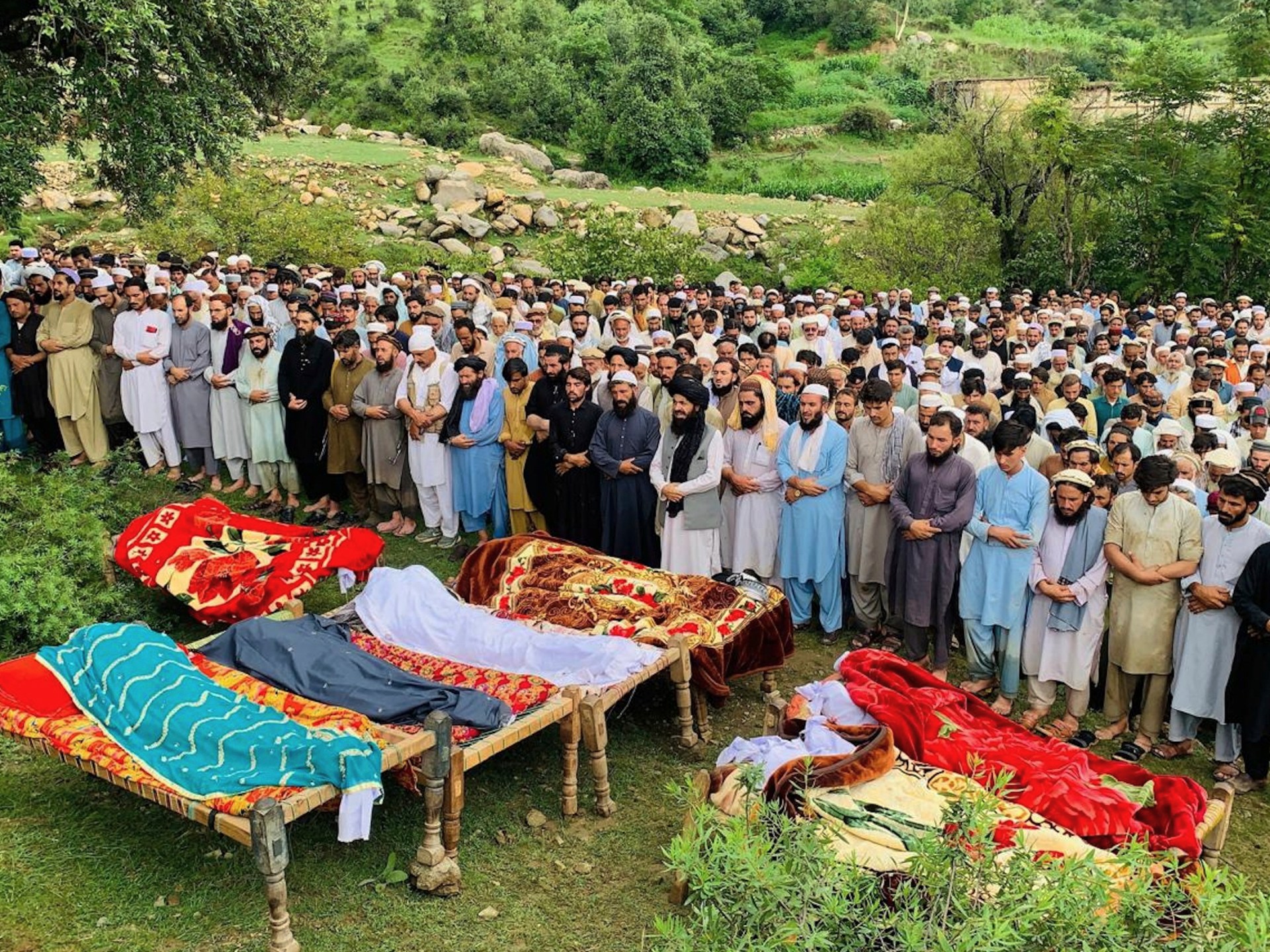Rescuers in northern Pakistan have pulled dozens of bodies overnight from homes ravaged by landslides and flash floods, taking the death toll to at least 321 in the past two days, according to disaster agencies.
Hundreds of rescue workers continue to search for survivors in the Buner district of Khyber Pakhtunkhwa province in northwest Pakistan after torrential rains and cloudbursts caused massive flooding on Friday, washing away dozens of homes, according to the provincial Disaster Management Authority.
First responders are focusing recovery efforts in the villages of Pir Baba and Malik Pura, which suffered the highest casualties on Friday, according to Bunar deputy commissioner Kashif Qayyum.
“We do not know from where the floodwater came, but it came so fast that many could not leave their homes,” said Mohammad Khan, 53, a Pir Baba resident.
Dr Mohammad Tariq at a Buner government hospital reported that most victims died before reaching medical care. “Many among the dead were children and men, while women were away in the hills collecting firewood and grazing cattle,” he said.
At least 307 casualties are from Khyber Pakhtunkhwa province.
Above-average rainfall in Pakistan, which experts attribute to climate change, has triggered floods and mudslides that have killed approximately 541 people since June 2, according to the National Disaster Management Authority.
In neighbouring Indian-administered Kashmir, floods have killed dozens and displaced hundreds in recent days.
Experts note that cloudbursts have become increasingly common in India’s Himalayan regions and Pakistan’s northern areas, with climate change being a significant contributing factor.
Pakistani officials report that since Thursday, rescuers have evacuated more than 3,500 tourists stranded in flood-affected areas nationwide, though many tourists continue to ignore government warnings to avoid these regions despite the risk of additional landslides and flash floods.
In 2022, Pakistan experienced its worst monsoon season on record, killing more than 1,700 people and causing approximately $40bn in damage.
